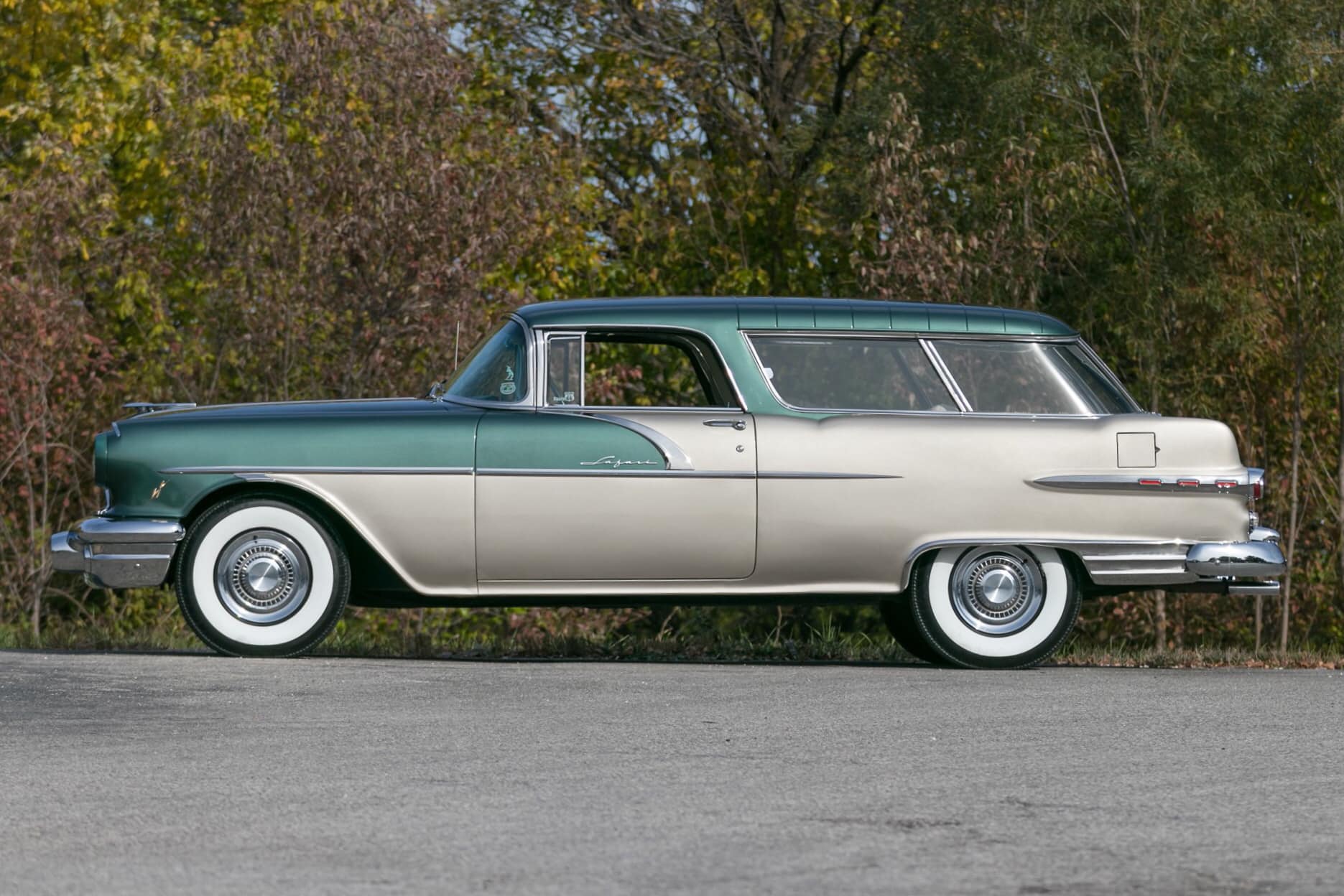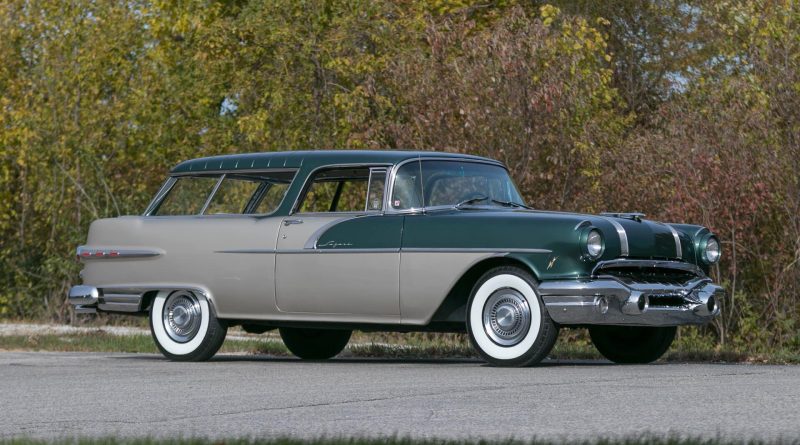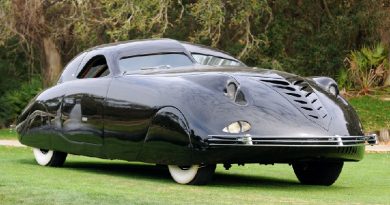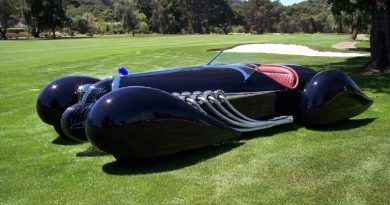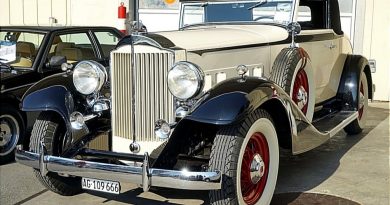1956 Pontiac Safari Wagon
The Safari was a station wagon that was produced by Pontiac. The name was first applied to Pontiac’s version of the 2-door Chevrolet Nomad station wagon. The body style, originally exhibited as a 1954 Chevrolet Corvette Motorama concept car, was shifted to Chevrolet and Pontiac full-size 1955 production vehicles because of the perceived greater sales potential. During its run, the Safari would be sold as its own station wagon model as well as a designation applied to Pontiac’s various other station wagon vehicles.

1956 Safari 2-door wagon, powered by a big block Pontiac 400/360hp GTO motor, with a Quadra-Jet 4-barrel carburetor and Turbo 400 transmission. Fresh silver two-tone custom paint with 18″ front and 20″ back Coy’s custom wheels.
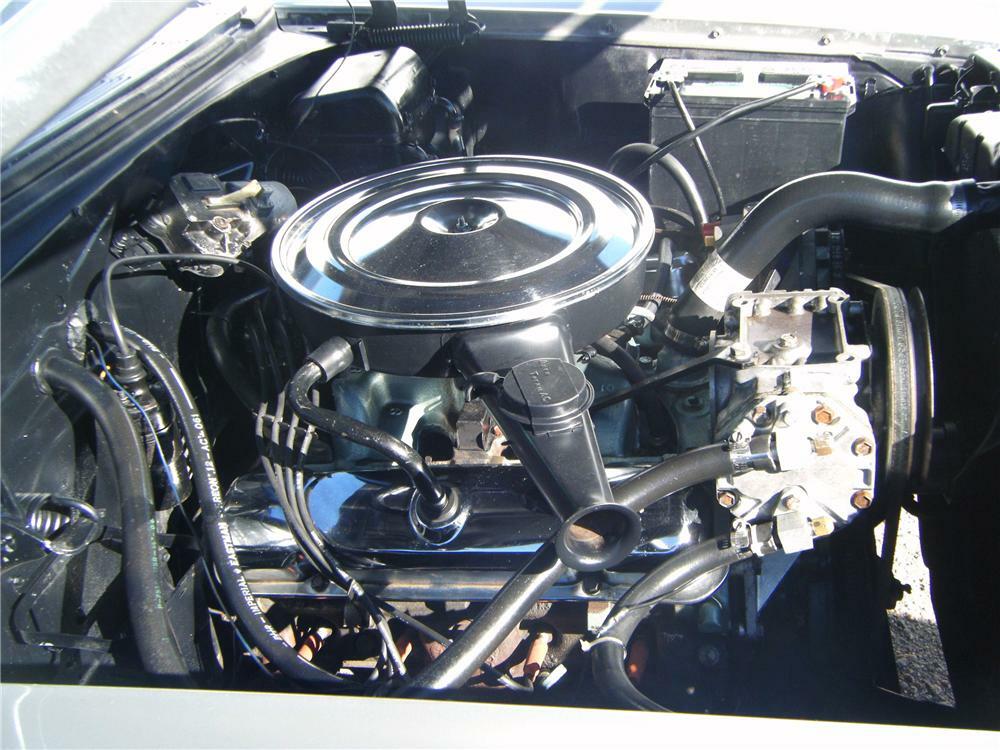
Finished in classic Sun Beige over Camellia Green with beautiful new White and Camellia Green leather interior. This magnificent motorcar has been beautifully restored with no expense spared. This is an original California car built in Van Nuys, CA and comes with all desired options. We are proud to offer what we believe is the finest and best restored Pontiac wagon in existence. Bid with confidence you will not be disappointed in this truly exquisite American classic!
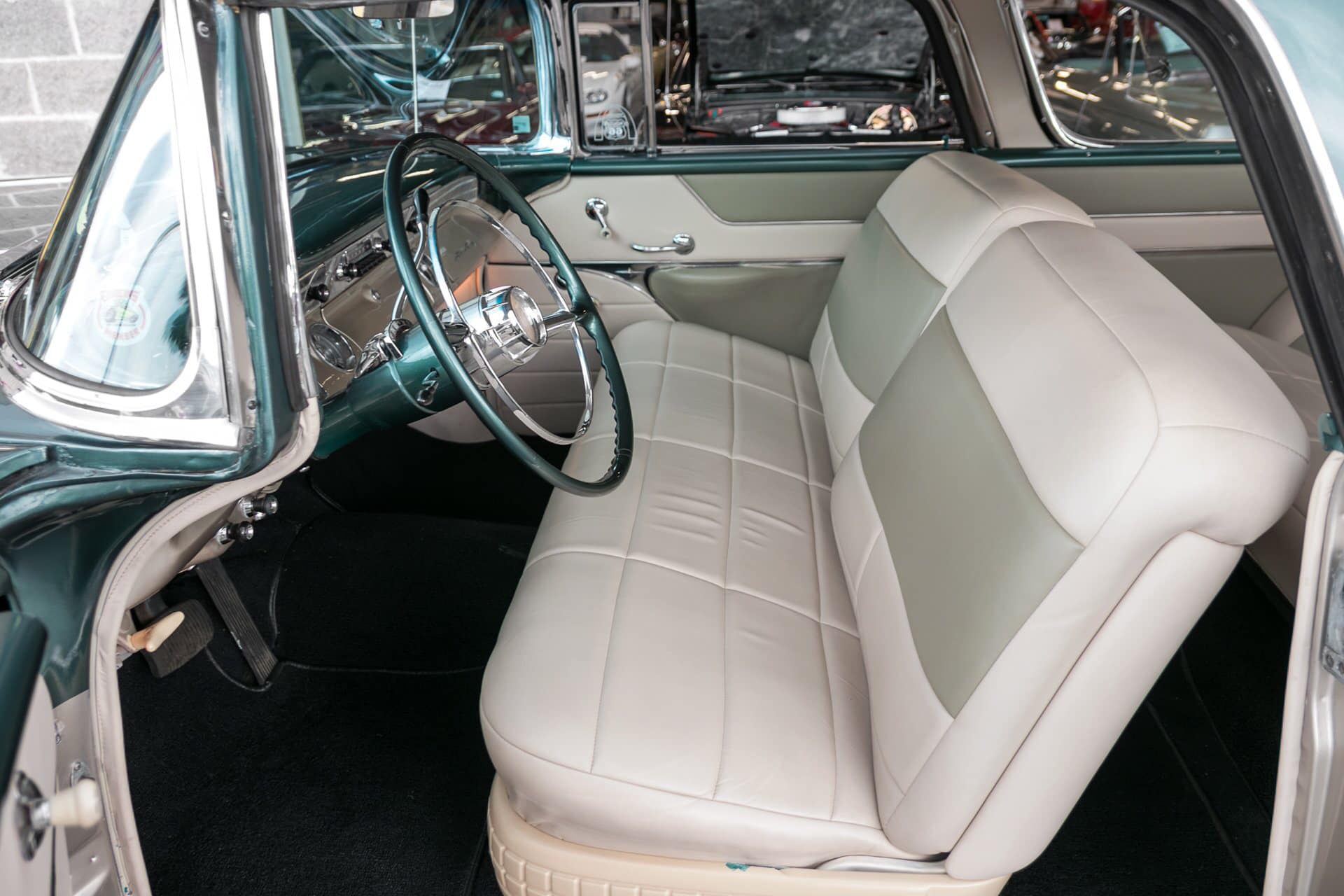
Safari was built using the Pontiac Chieftain, and shared body components with the Chevrolet Nomad station wagon, which would also allow both divisions to share in the tooling costs for the special bodied wagons. The Safari was fitted with Pontiac’s unique front-end bumper/grille assembly and sheet metal and rear tail light design, both created by Pontiac stylist Paul Gillan, who received a United States patent for the bumper/grille design. The Safari featured sport-coupe front doors, extra chrome adorning the tailgate and interior, and sliding rear-seat windows. Like the Nomad, the ‘B’ pillar of the station wagon was raked forward, a flourish not shared with other GM two-door station wagons from that era.
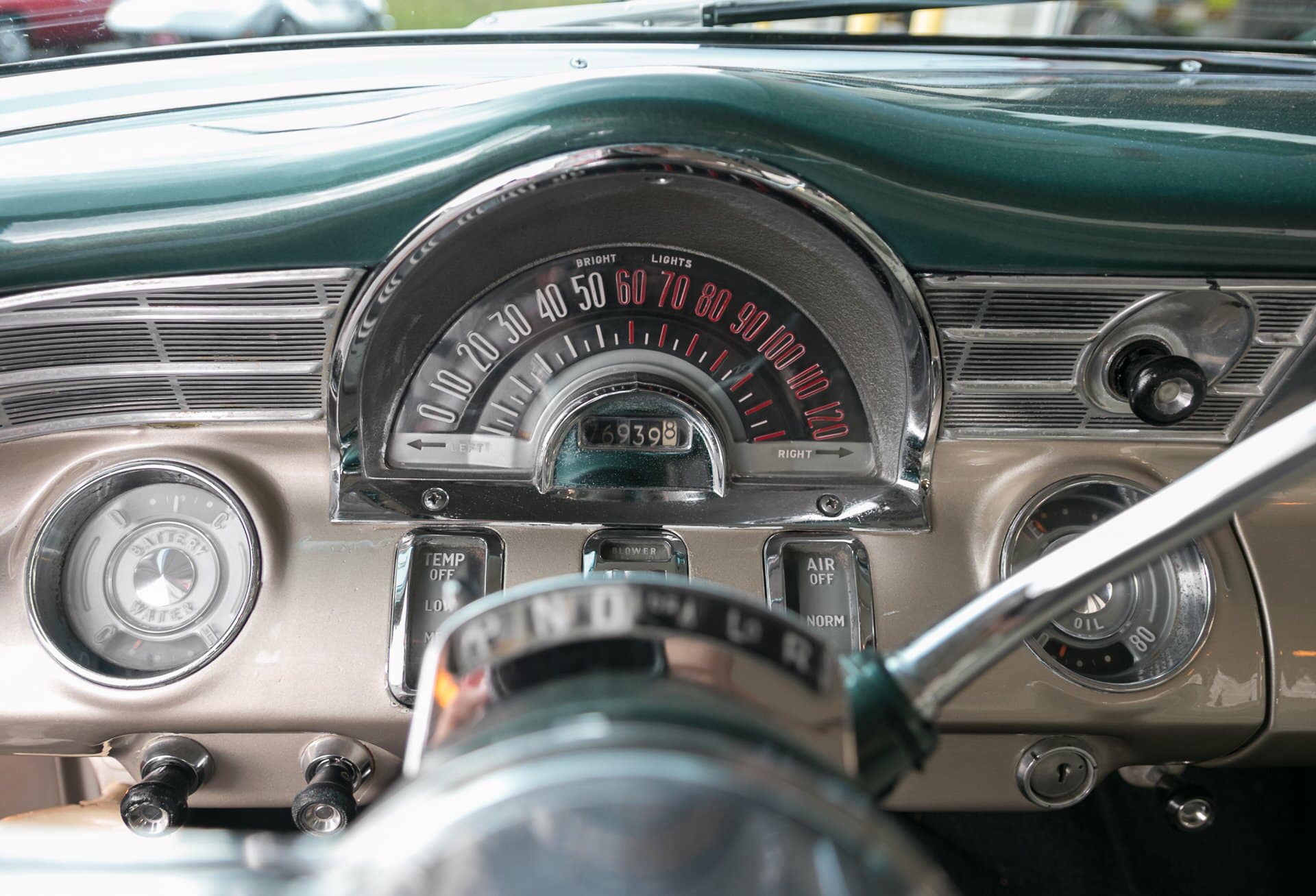
The name “safari” is derived from the Swahili word safari, which means journey, originally from the Arabic safar meaning a journey; the verb for “to travel” in Swahili is kusafiri.
